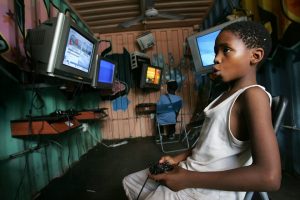TechInAfrica – Along with the rise of online and digital revenues, the culture of video gaming is also changing, from the devices to play the games, to the numbers of gamers. One case is in-game purchases, which has been on the rise for the past year. It refers to purchasable items or points for the game, and it’s primarily used to enhance the playing experience, as well as beautify and improve the character’s appearance or skills. Players use real cash in exchange for virtual goods, and the industry is seeing the influence of high-speed internet access at home and increasingly powerful processors and graphics in smartphones that spiked this growth. Some may doubt the pleasure of smartphone’s game as ‘real gaming’, but developers are the ones that collect the benefits at the end of the day.

According to a report, 2017 was the year of social gaming, as in mobile gaming on smartphones, and this trend is also reflected in the South African gaming scene. What triggered this growth? In 2018, an estimated generation of console games was around R92 M in revenue and PC games set close to R293 M rand from online digital micro-transactions. One advantage of social gaming is how it’s more laidback than the usual fare. Players can play while doing other activities, and it’s something that they can do most of the time since not everyone has the time to completely adhered to his or her full-day gaming routine. This element is what makes the free-to-play revenue model with downstream in-game purchases notably more popular than before.
Users prefer free games with an opt-in for in-game item purchases rather than instant payment or subscription service type models, but micro-transactions needs to be investigated in regards to its ethics. Meanwhile, the online transactions have increased by 13 percent for gamers, from 2018 to this year in South Africa. The shift is evident in the physical copies purchases to download the digital versions, along with the aggressive online pricing and promotions, has the digital sales sold successfully. But this wasn’t always the case with some titles, which apparently still highly-sold in its physical version, like FIFA 19 and Sims 4, which conventionally gifted for kids on Christmas’s Eve.

It’s also worth to note that the South African e-Sports stars received R3.78 M rand in 2018. Looks like South Africa is saving a potential future for the gaming industry.
Source: Thesouthafrican.com


